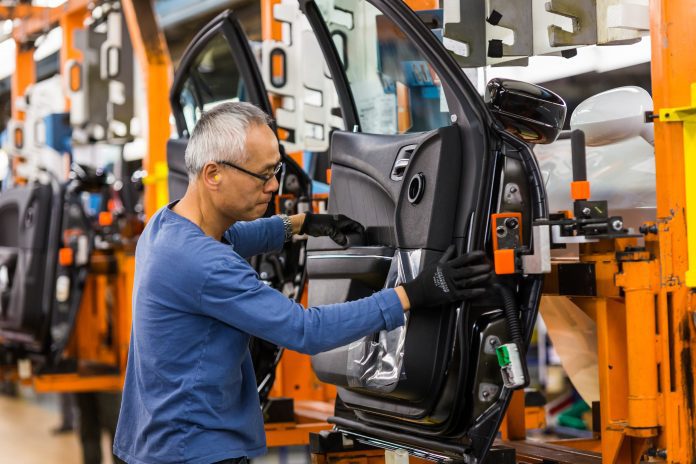Stellantis NV has decided to pause operations at its Brampton Assembly Plant in Ontario, Canada, while the company reviews its plans for the next-generation Jeep Compass SUV, scheduled to begin production in 2026. This decision follows leadership changes, including the departure of CEO Carlos Tavares and growing uncertainties surrounding President Trump’s policies on EV tariffs and support.
Work at Brampton had been underway for the Compass’ retooling, but all preparations—including factory modifications—have been paused effective immediately. While it’s unclear if temporary layoffs are happening, Stellantis hasn’t provided details on how long the work stoppage will last.
A spokesperson for Stellantis, Jodi Tinson, emphasized the pause does not affect previously announced investments aimed at the plant’s electrification efforts. The Brampton plant, which had previously built the Dodge Charger, Challenger, and Chrysler 300, ceased operations in late 2023 after production ended for these models.
Stellantis is undergoing significant strategic reevaluation, driven by internal leadership changes and external market conditions. As part of its $2.8 billion investment in North America, the company has been preparing the Brampton facility for the production of the Compass, a model that will feature multi-energy propulsion systems, including electrified and gas-powered versions.
The Jeep Compass is the brand’s most affordable vehicle in the U.S. following the discontinuation of the Renegade. The company plans to launch the next-generation version, based on the STLA Medium platform, in 2026. However, ongoing production uncertainties may cause this timeline to shift.
Similar delays are impacting other automakers, such as Ford, which has pushed back the launch of its next-gen F-150 pickups to 2028, due to a broader trend of delaying electric vehicle rollouts while expanding the life of internal combustion engine (ICE) models. Sam Fiorani, Vice President of Global Vehicle Forecasting at AutoForecast Solutions, noted that delays are also due to slow EV sales and ongoing concerns about vehicle pricing, range, and charging infrastructure.
For Stellantis, the pause at Brampton reflects the need to align production with shifting market demands, particularly as EV strategies continue to evolve in North America.





